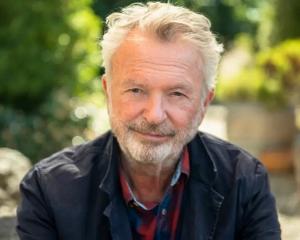John Maynard Keynes. We've been hearing rather a lot about him lately. He derived his core thinking from observations of the Great Depression of the 1930s.
It is to this event that the crisis now afflicting the global financial system is most frequently compared - from the lofty position of hindsight: what we must do now that, tragically, was not done then and so prolonged the agony.
What we should do now, according to economists and commentators, is take a leaf from the doctrine of this grand old man of 20th-century economics.
As much as it seems heinously counterintuitive, we should spend.
We need to come over all Keynesian and use public money - even if we have to go into debt to do it - to keep a flagging economy moving, to stimulate it by creating jobs and demand.
We should do it internationally - witness Britain's $56.3 billion package announced yesterday - we should do it nationally and we should do it locally.
It is the best way, it is said, to avoid entire economies from collapsing in on themselves. There are heretics, of course, but both our major parties appear not to be among them.
Prior to being voted out of office, the former Labour-led government had mooted a mini-budget, to be announced before Christmas that would introduce an economic stimulus package through capital spending on infrastructure projects.
It had up its sleeve plans to spend almost an additional $5 billion between 2009 and 2015 on rail and road, sewerage and water projects, state housing, school building programmes and so on.
Likewise, the National Party, before the election talked figures in the region of $8.5 billion for new projects over the next six years.
They are not alone.
Prime Minister John Key has been in Lima, Peru, arguing robustly for the sort of progress in free trade that will keep the world out of deep recession.
There will have been consensus there, too, that a degree of careful regulation to control the free-wheeling gears and leavers of 21st-century capitalism - the derivatives markets and hedge funds, the now discredited "securitised asset" markets and credit default swaps (whatever they might be) - is required.
And that a good old bit of Keynesian pump-priming should be added to the mix.
Whereas a prevailing economic orthodoxy has worshipped at the altar of free-market infallibility, we have seen in recent weeks a rash of converts to state-sponsored "socialism".
Last week in the United States, the heads of the major US car industries arrived by Lear jet to request a government bail-out from Congress.
This week it is Citigroup, the second biggest banking corporation in the country - which has now benefited from taxpayer largesse to the tune of $US45 billion.
And yet the diehards still want to argue that the markets failed only because of the imperfections of such regulation that did exist.
The problem is that even if one did get rid of all such so-called regulatory imperfections, you would still have the human ones - the ones primarily responsible for the mess in the first place: namely greed, dishonesty and an utter disregard on the part of some for the effects of their self-serving actions on fellow citizens.
But I digress.
Australian Prime Minister Kevin Rudd last week took the Keynesian bull by the horns and announced a $A300 million spending programme for local councils.
According to a report in the Australian newspaper, the nation's mayors have until next June to spend the money, in "a race against time" designed to create jobs and stimulate the economy.
There is $50 million in the kitty for sports stadiums.
One of the main provisos is that the projects have to be pretty much ready to roll, so as to get the input into the economy sooner rather than later.
"The Australian economy is sound, but we are not immune from the global slowdown and the real possibility of global recession," Mr Rudd said.
"This is a significant opportunity for local councils to rise to the challenge and address local infrastructure needs. Councils are encouraged to develop high-quality proposals so that funding can be released as quickly as possible."
Reports from Peru indicate a happy marriage of minds on such matters between Mr Key and Mr Rudd.
When Mr Key returns from visiting the Queen in London one of the things he could be doing is casting around for deserving local projects to which the Government might make some small contribution.
Again, and it might seem counterintuitive, but did someone mention a sports stadium?
• Simon Cunliffe is assistant editor at the Otago Daily Times.










